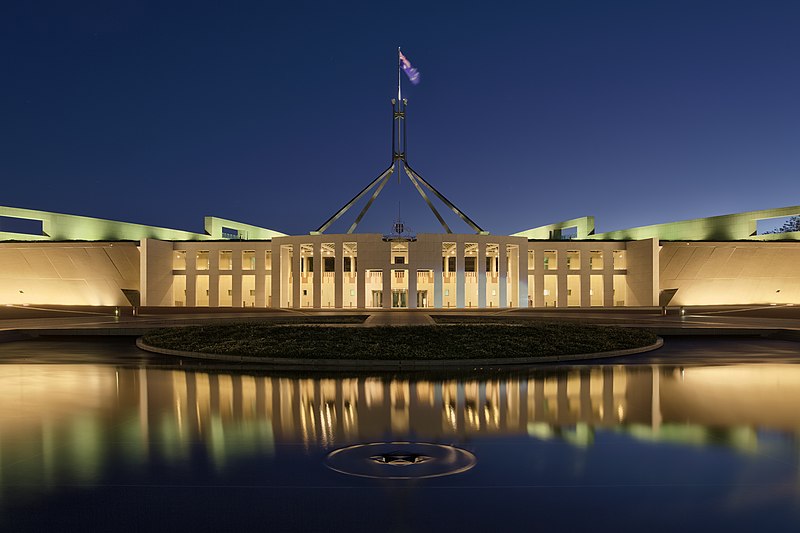
Elections this May for two unions at opposite ends of the world: Australia, a federation that has lasted for more than a hundred years, and the European Union - which also has a long history - being founded by the treaty of Rome in 1958. But despite the physical distance between these elections, the underlying tensions are not so different after all.
Start with the voting method, the European Parliament with its 751 seats, et 28 member states, and the Australian Parliament with 226 seat, six state and two territories, both have difficulty integrating the democratic necessity to gave power to a majority but still to allow minority voices to be heard. Each has a different solution...
The "Old Continent"
 |
| The European Parliament in Strasbourg ©* |
In Europe, all the states divide up the seats in a way that is degressive and proportional: that to say each state is accorded seats in function of their population (more people = more seats) but as the population of a country increases, the additional number of seats is reduced.
So populous countries like Germany, Italy, France or (for now) the United Kingdom don't dominate the Parliament, and little countries (who are guaranteed at least six seats) have at least a presence.
All of these countries can select their voting method if it respects the rule of proportionality: France today therefore has a single electorate taking in the whole country with a list system (where political parties produce lists of candidates and electors vote for a(n entire) list), but from 2004 to 2014 had instead eight regional circumscriptions of the same size.
The other end of the world...
 |
| The Australian Parliament ©* |
In Australia, representatives of the country are divided into two houses: one, the House of Representatives, has 150 seats distributed nearly equally so that each seat has the same population, and the other, the Senate, has 76 seats, 12 for each state and two for each territory (and note that Tasmania receives at least five seats in the House of Representatives).
Each MP of the House of Representatives is elected by a preferential majority
(meaning that it's not proportional) and each Senator is elected proportionally and preferentially.
At the national level, compulsory voting was put in place in 1924 after a rather low participation rate in an election. Today participation rate remains high thanks to this compulsion but also thanks to other measures taken to favorise voting by all - for example: élections occurring exclusively on weekends and AEC publicity funded by the government. Even if democratic enthusiasm declines like in Europe, the numbers are truly very far from the 57% non-voting rate in the 2014 European Elections.
(meaning that it's not proportional) and each Senator is elected proportionally and preferentially.
At the national level, compulsory voting was put in place in 1924 after a rather low participation rate in an election. Today participation rate remains high thanks to this compulsion but also thanks to other measures taken to favorise voting by all - for example: élections occurring exclusively on weekends and AEC publicity funded by the government. Even if democratic enthusiasm declines like in Europe, the numbers are truly very far from the 57% non-voting rate in the 2014 European Elections.
Why such a difference? Some would raise the difficulty of understanding the multitude of European authorities, or the lack of compulsory voting (although Belgium and Luxembourg diverge from the norm in this area also), the reject of supranational organisations, or even . Whatever the reason, the solution is hard to find.
.fr .au is a series of articles that compare Australia and France available in French and in English. Version française ici. The next article will look at the Australian election results...
.fr .au is a series of articles that compare Australia and France available in French and in English. Version française ici. The next article will look at the Australian election results...
*The images:
(1) Lien
(2) © Claude Truong-Ngoc / Wikimedia Commons Lien
For more information:
Australian Broadcasting Corporation
Judith Brett, A history of compulsory voting in Australia (and why we are so good at elections).
Judith Brett, A history of compulsory voting in Australia (and why we are so good at elections).
